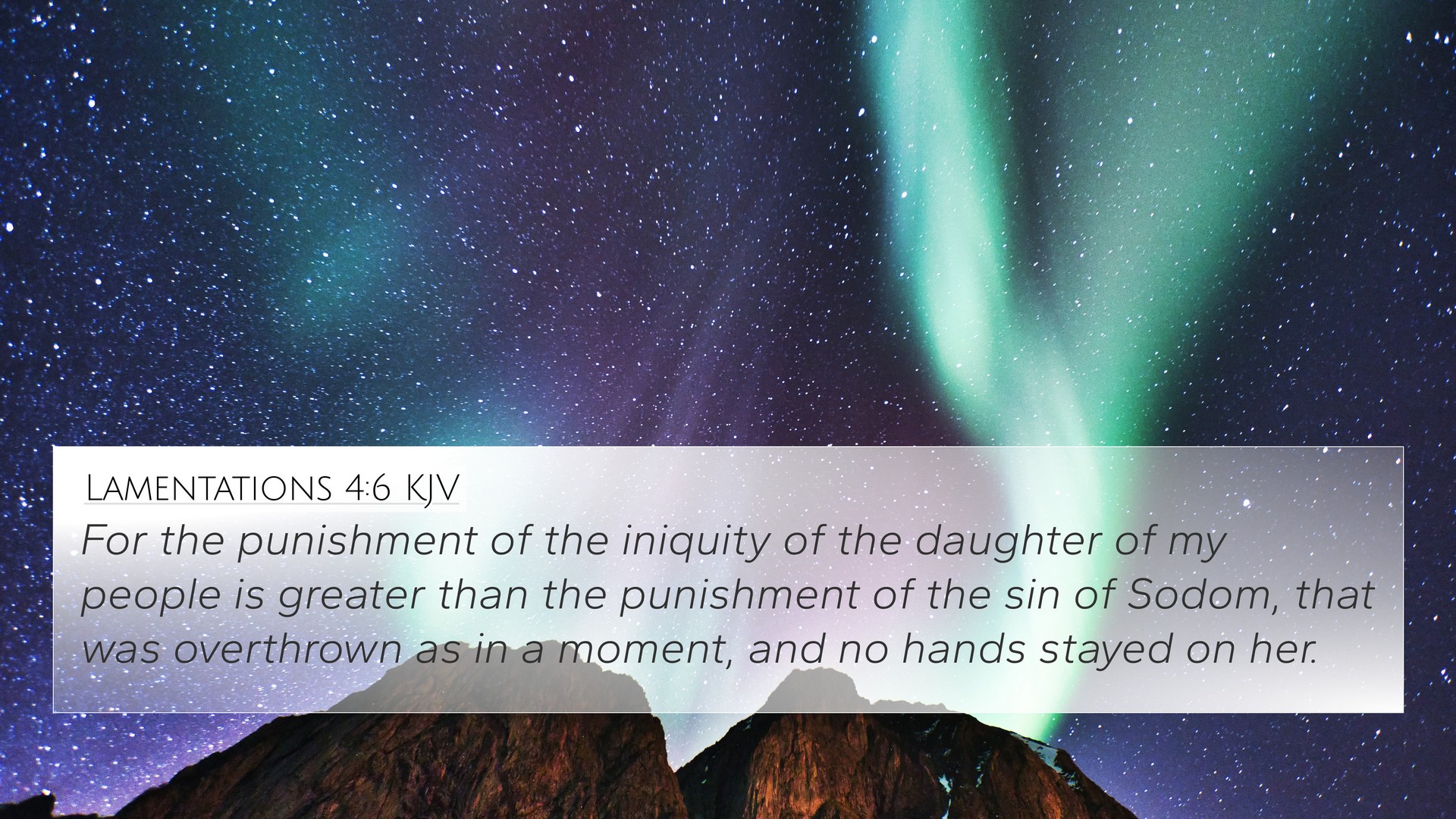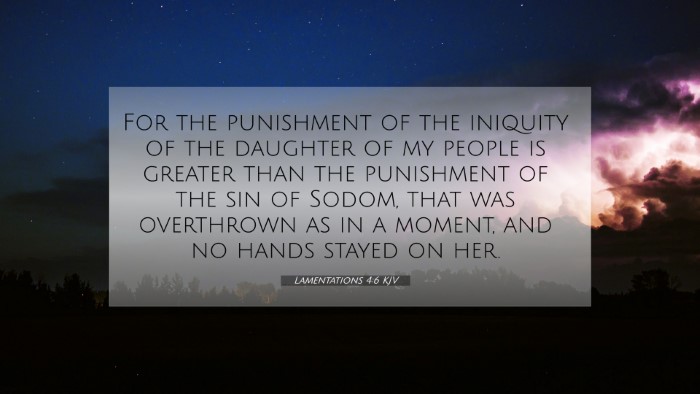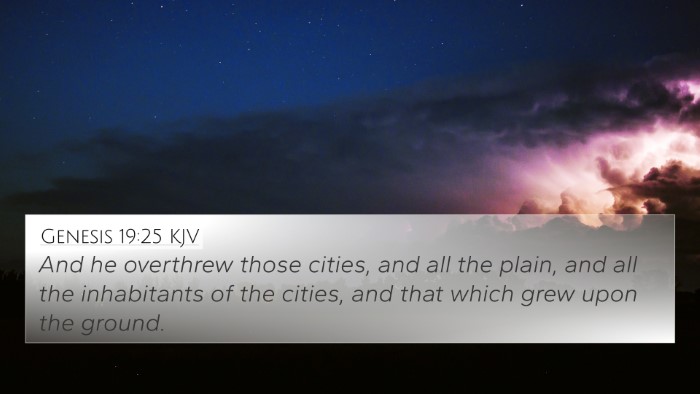Lamentations 4:6 - Summary and Commentary
Lamentations 4:6 states:
"For the iniquity of the daughter of my people is greater than the sin of Sodom, that was overthrown as in a moment, and no hands stayed on her."
This verse emphasizes the severity of sin among the people of Judah at the time of their calamity, suggesting a deep moral decay that surpasses even the infamous sins of Sodom. Below is an analysis and interpretation of this powerful scripture using insights from esteemed public domain commentaries.
Interpretation and Insights
The core message of Lamentations 4:6 revolves around the gravity of the sin that led to the suffering of Jerusalem. Through the perspectives of various commentaries, we find the following insights:
-
Matthew Henry's Commentary:
Henry notes the tragic irony in comparing Jerusalem’s sin to Sodom's, highlighting that Sodom’s destruction was swift and without warning, whereas the people of Jerusalem were given ample prophetic warning yet chose to persist in sin. This serves to depict their greater guilt.
-
Albert Barnes' Notes:
Barnes emphasizes the spiritual state of Jerusalem. He suggests that the household of faith had fallen into deeper corruption compared to the ancient cities destroyed by God. Jerusalem's greater iniquity is a reflection of the covenant relationship they had with God, which made their rebellion more grievous.
-
Adam Clarke's Commentary:
Clarke remarks on the historical context, indicating that Sodom was destroyed for its abominable sins, yet the people of Jerusalem, who were once God’s chosen, had fallen from grace to a state deserving even greater punishment. Clarke highlights the notion of “greater guilt” resulting from a knowledge of God’s law and covenant.
Cross-References to Lamentations 4:6
This verse has several cross-references that illuminate its meaning and underscore the themes of sin, judgment, and the need for repentance:
- Ezekiel 16:49-50: Describes the sins of Sodom, providing context for the comparison made in Lamentations.
- Isaiah 1:10: Refers to Jerusalem as Sodom and Gomorrah, emphasizing its moral decline.
- Jeremiah 23:14: Indicative of the prophets' warnings about the sins of Judah, stressing that the iniquities had reached a critical point.
- Romans 2:21-24: Paul discusses hypocrisy, pointing out that those who judge others often fall into the same sins.
- 2 Peter 2:6: Refers to God’s judgment upon Sodom, linking it to the overall theme of divine retribution for sin.
- Matthew 11:23: Jesus mentions Capernaum’s sin and suggests that it will be judged harsher than Sodom due to the greater revelation received.
- Amos 3:2: God’s unique relationship with Israel holds them to a higher standard of conduct.
Thematic Connections
The themes present in Lamentations 4:6—such as divine judgment, repentance, and mercy—are echoed throughout the Scriptures. Understanding these connections enriches our interpretation and application of biblical teachings.
Importance of Cross-Referencing
Cross-referencing biblical texts is an essential tool for deeper scriptural study. Utilizing a Bible concordance or a cross-reference Bible study guide can help one find inter-related verses, enhancing understanding of the biblical narrative.
How to Use Bible Cross-References
When studying Lamentations 4:6, consider using the following strategies to deepen your understanding:
- Utilize tools for Bible cross-referencing to locate verses that complement or contrast with Lamentations 4:6.
- Engage in a comparative Bible verse analysis to explore similar themes across different books of the Bible.
- Reflect on the emotional and spiritual implications of the declarations made in Lamentations, tying them to the broader biblical narrative.
Conclusion
Lamentations 4:6 serves as a sobering reminder of the consequences of sin and the necessity of repentance. By exploring this verse within the wider framework of scripture, one gains insight into the serious nature of rebelliousness against God and the call for restoration and holiness. The connections drawn from cross-references and thematic considerations help illuminate the Scripture's teachings, guiding believers in their spiritual journey.











